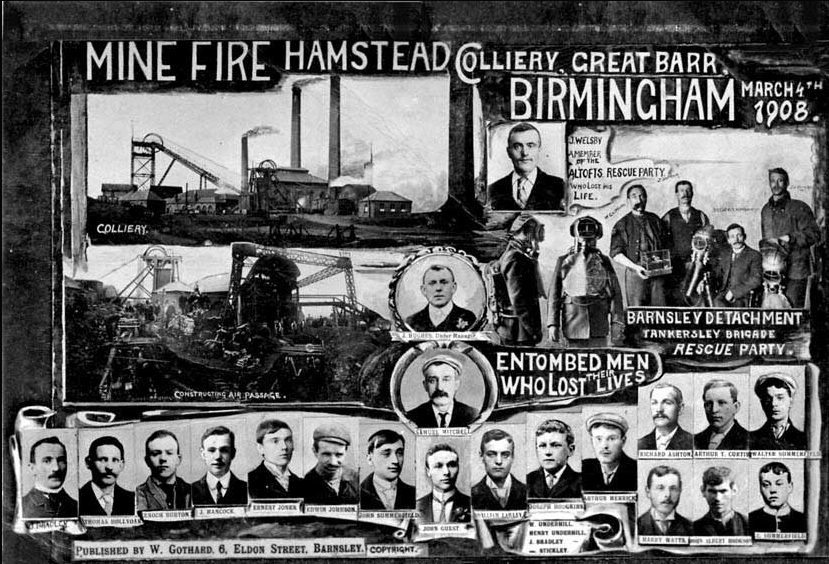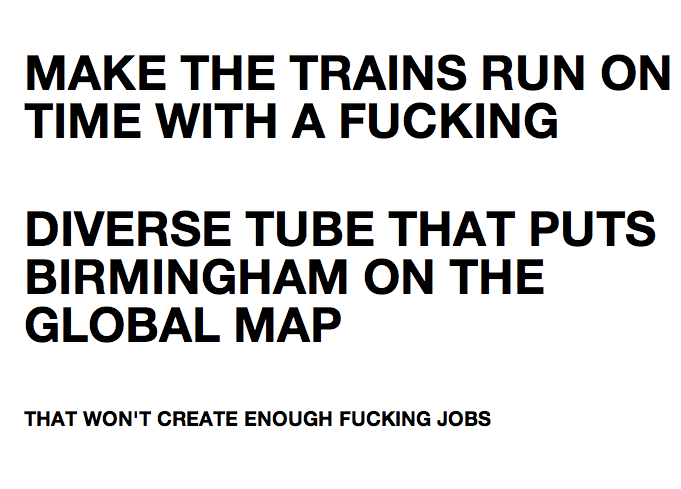In 1908 26 men lost their lives just on the edge of Birmingham, but also on the edge of our understanding of the earth itself. Opened in 1876 Hamstead Colliery was at that point the deepest mine in the World—2000 feet down beneath the surface. Not too far from where the Aldi is now.
At this point Birmingham led the globe in the technology of digging holes in the ground, the heroic deeds of those that went down them created stories and songs and flooded popular cognition: along with fishermen, miners were the working class cultural heroes that built a nation. These miners would be the foundation of the celebration of the differences between the rich and the poor—which is the central tension in all great Great British culture.
The high point—celebrating but diametrically opposite to the deep seam miners—is 1962’s Hole in the Ground by Bernard Cribbins, which peaked at number 9 in the charts. The numerologists amongst you will have spotted that there’s a 9 in 1908, and also that 1+0+8=9 (much like how 1962’s 1+6+2=9)—that’s no co-incidence. 54 years later (54/9=6, turn that around much like the miners and Cribbins were opposite terraneally, and they were both opposed to the ruling class and you get—a 9) Cribbins punished the capitalists, puncturing them with the sharp end of his spade. He dug it round when they wanted it square, he dug it where he wanted it to be: but most of all he dug it towards those class martyrs of Hamstead in Birmingham.
Noël Coward chose the record as one of his Desert Island Discs, probably unaware of the implied class genocide in the last verse. Hole in the Ground is one piece of popular culture where the working man comes out on top—literally—and that’s a tribute the those that we lost. It’s a tribute to the courage—and digging skills—of the men of Birmingham. Together they produced a message to the capitalists—and that’s that.



